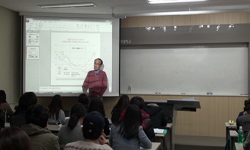Objectives: Recently, food insecurity has been a major public health issue along with the food crisis caused by COVID-19, climate change, and the polarization of food supply due to socioeconomic dis- parities. Food insecurity is known to be related to...
http://chineseinput.net/에서 pinyin(병음)방식으로 중국어를 변환할 수 있습니다.
변환된 중국어를 복사하여 사용하시면 됩니다.
- 中文 을 입력하시려면 zhongwen을 입력하시고 space를누르시면됩니다.
- 北京 을 입력하시려면 beijing을 입력하시고 space를 누르시면 됩니다.

제주지역 성인의 먹거리 보장에 따른 먹거리 구매 실태 및 정책 인지와 먹거리 환경 만족도: 2022년 제주 먹거리 실태조사 자료를 활용하여 = Food purchase patterns, food policy recognition, and food environment satisfaction among adults in Jeju, Korea, according to food security: a cross-sectional study
한글로보기https://www.riss.kr/link?id=A109353382
- 저자
- 발행기관
- 학술지명
- 권호사항
-
발행연도
2024
-
작성언어
Korean
- 주제어
-
등재정보
KCI등재
-
자료형태
학술저널
- 발행기관 URL
-
수록면
406-417(12쪽)
- DOI식별코드
- 제공처
-
0
상세조회 -
0
다운로드
부가정보
다국어 초록 (Multilingual Abstract)
Results: Among the total participants, 47.4% were in the food insecurity group. The frequency of purchasing local and eco-friendly foods did not significantly differ by food security status. The inse- curity group exhibited a higher recognition rate of basic rights to food (36.0%) than the security group (24.7%, P = 0.023). The recognition and necessity of specific food policies did not significant- ly differ by food security status, except for the policy of promoting food communities, for which the food security group exhibited higher recognition than the food insecurity group did (P = 0.004). The food insecurity group exhibited significantly lower scores regarding satisfaction toward diet and food environment factors (P < 0.05 for all).
Conclusion: Overall, the food security group reported higher satisfaction with their diet and food en- vironment than the food insecurity group. Further in-depth studies to investigate the determinants of food insecurity and effective promotional strategies for food policies are needed.
Objectives: Recently, food insecurity has been a major public health issue along with the food crisis caused by COVID-19, climate change, and the polarization of food supply due to socioeconomic dis- parities. Food insecurity is known to be related to the food choices and environment of the consum- er. Therefore, this study aimed to evaluate the food security statuses of adults in Jeju and investi- gate their food purchase patterns, food policy recognition, and food environment satisfaction. Methods: Based on data from the 2022 Jeju Food Survey, 346 adults aged ≥ 19 years in Jeju were classified into food security and insecurity groups (quantitatively and qualitatively) using the ques- tionnaire. Food purchase patterns, including purchasing frequency, items, and reasons, were sur- veyed for local and eco-friendly foods. The recognition and necessity of several food policies and satisfaction with diet and food environment (availability, accessibility, affordability, accommodation, and acceptability) were measured using the Likert scale.
Results: Among the total participants, 47.4% were in the food insecurity group. The frequency of purchasing local and eco-friendly foods did not significantly differ by food security status. The inse- curity group exhibited a higher recognition rate of basic rights to food (36.0%) than the security group (24.7%, P = 0.023). The recognition and necessity of specific food policies did not significant- ly differ by food security status, except for the policy of promoting food communities, for which the food security group exhibited higher recognition than the food insecurity group did (P = 0.004). The food insecurity group exhibited significantly lower scores regarding satisfaction toward diet and food environment factors (P < 0.05 for all).
Conclusion: Overall, the food security group reported higher satisfaction with their diet and food en- vironment than the food insecurity group. Further in-depth studies to investigate the determinants of food insecurity and effective promotional strategies for food policies are needed.
동일학술지(권/호) 다른 논문
-
장애인 식생활 지원제도 필요 및 지원방안에 관한 탐색적 조사연구
- 대한지역사회영양학회
- 박종은
- 2024
- KCI등재
-
- 대한지역사회영양학회
- 권진희
- 2024
- KCI등재
-
- 대한지역사회영양학회
- 심소헌
- 2024
- KCI등재
-
지속가능한 식생활교육에 대한 영양(교)사의 교육요구도 분석: IPA, Borich 요구도, The locus for focus 모델 적용
- 대한지역사회영양학회
- 양은서
- 2024
- KCI등재




 ScienceON
ScienceON DBpia
DBpia



